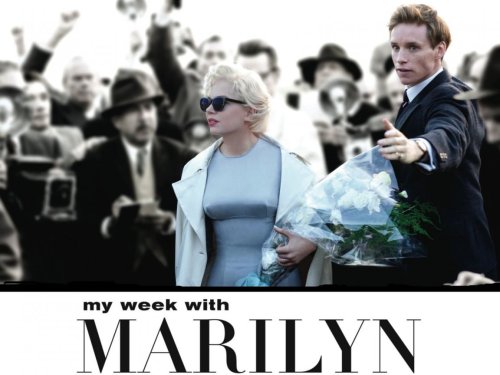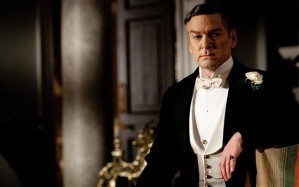Star Rating: 3/5
Director:
- Sam Mendes – American Beauty, Revolutionary Road, Skyfall
Cast:
- Daniel Craig – The Trench, Casino Royale, Quantum of Solace, Defiance, Skyfall
- Ben Whishaw – The International, Cloud Atlas, Skyfall, Suffragette, The Danish Girl
- Naomi Harris – Trauma, Pirates of the Caribbean II-III, The First Grader, Skyfall, Our Kind of Traitor
- Ralph Fiennes – Harry Potter IV-VII(i) & VII(ii), Coriolanus, Wrath of the Titans, Skyfall, Hail, Caesar!
- Léa Seydoux – Inglorious Basterds, Robin Hood, Mission: Impossible IV, Blue Is The Warmest Colour, Gambit
- Monica Bellucci – The Matrix II-III, The Passion of the Christ, The Sorceror’s Apprentice, On The Milky Road
- Christoph Waltz – Inglorious Basterds, Carnage, Django Unchained, Big Eyes, Tarzan
- Dave Bautista – WWE Smackdown, WWF Raw, Guardians of the Galaxy, Warrior’s Gate
- Andrew Scott – The Scapegoat, Pride, Alice In Wonderland II, Denial
- Rory Kinnear – Quantum of Solace, Broken, Skyfall, Penny Dreadful, Trespass Against Us
- Jesper Christensen – Casino Royale, Quantum of Solace, The Debt, The King’s Choice
- Judi Dench – Bond 17-23, Shakespeare In Love, Notes On A Scandal, My Week With Marilyn, Philomena, Tulip Fever
Music Composer:
- Thomas Newman – Cinderella Man, The Debt, The Adjustment Bureau, The Help, The Iron Lady, Skyfall, Side Effects, The Judge, Bridge of Spies
What is the role of secret agents, and in particular, James Bond in the current era? Sir Ian Fleming, the author of the Bond novels, wrote Casino Royale in 1952. That was at the height of the Cold War between the USA and the USSR, when espionage involving personnel was at its zenith. But in 2015, the USSR no longer exists and espionage involving personnel has been downgraded due to technology. So, again, what is the role secret agents/James Bond nowadays? Spectre, Bond’s 24th outing, deals with this question in typical Bond fashion.

James Bond (Daniel Craig), looking worn and tired after an eventful trip to Mexico, gets a dressing down from M (Ralph Fiennes) upon his return to London.
Spectre opens up in Mexico City, wherein James Bond (Daniel Craig) acquires a ring bearing an octopus insignia. Upon returning to London, M (Ralph) demands that Bond explain what he was doing in Mexico. Bond refuses to explain, which leads to M indefinitely taking him off duty as a secret agent. Upon returning home, Bond re-watches a recording from his former superior, reminding him about a mysterious organisation called ‘Spectre.’ Despite having been removed from duty, Bond leaves London to unearth more about this shadowy organisation.
Meanwhile, in London, M:I-6 has a new intelligence officer, C (Andrew Scott). C has his own plans to take M:I-6 forward; one of which is to dismantle the ‘00’ programme, putting him on a collision course with M.
Spectre, in many ways, is an archetypal Bond movie. Does it have a spectacular opening sequence? Yes. Is there a trademark song afterward it? Yes. Does Spectre have some witty (touché) dialogue? Yes. Does the film have a glamorous-looking cast along with breath-taking locations? Yes. Does the movie have some brilliant stunts, action sequences, and cool explosions? Yes. Does it have a weak storyline in which viewers have to suspend their disbelief to go through with it, without laughing at it? Absolutely! Therefore, Spectre delivers on its (formulaic) expectations for a Bond movie.
However, in two ways, Spectre differs from most other Bond films. One, it makes enough references to other Bond films for it to be an homage to the Bond franchise; particularly, to those of the Craig era. And, two, Spectre is conspicuously slow-burning. Bond films tend to be fast-paced and filled with action to keep viewers interested during the supposedly less interesting parts of the film i.e. when Bond travels from one dazzling place to another, to find out information for the mission. Yet, at 150-minutes, Spectre has so much (often pointless) travelling that even the action sequences cannot keep viewers interested. In short, the movie needed to be cut by 30-45 minutes, especially during the middle hour where little happens. But because it has not been edited sufficiently, Spectre borders on boring at times, which is very unlike a Bond film.
Nevertheless, during these ‘boring’ parts, one gets to explore a different (vulnerable?) side of Bond’s character; notably, whether James Bond actually enjoys being James Bond. Not only is this elucidated adeptly, but due to Daniel Craig’s aging appearance it seems entirely apt to have these questions raised. Indeed, Craig looks old and worn in Spectre, as if the strain of being Bond has taken its toll on him. Still, he is marvellous, tough and wryly humorous as Bond; probably more so than in Skyfall.
Likewise, Ben Whishaw is a joy to watch as the funny and smart Q, as is Christolph Waltz as the mysterious, villainous Oberhauser; and as is Ralph Fiennes as the serious M. Léa Seydoux plays quite well, too, as Bond’s temperamental love-interest, Dr Madeleine Swann. Surprisingly, she has been given considerable character depth for a Bond Girl. Seydoux may lack chemistry with Craig on screen, but her character often drives Bond and the plot forward in interesting ways.

Bond’s cunning nemesis, Oberhauser (Christoph Waltz), the shadowy figure at the head of a clandestine organisation, known as ‘Spectre.’
Between her and Bond, and M and C), Spectre tries to intellectually tackle important questions that have become extremely relevant to Western politics since 9/11. Fascinatingly, the movie discusses the role of secret agents and technology, hinting at how times have changed since the Cold War; and how much power spy organisations should be given regarding the surveillance of ordinary citizens. Granted, Spectre only tackles these questions on superficial levels (and with answers that one could have guessed from a Bond film). But at least the movie brings up these questions. They also add a layer of depth to the storyline, which is always welcome.
Over-all, Spectre is an all right James Bond movie. It is quite long, but fun and entertaining in ways that are reminiscent of so many other, previous films in the franchise. Nonetheless, Spectre differentiates itself from other Bond films by winking at fans with self-reference; by giving Bond and the other characters some depth; and, most notably, by trying to address complex issues that have plagued Western governments since the turn of the 21st-century. Spectre makes some valid arguments on the role of spies, technology, and the extent to which security organisations should be permitted to use surveillance in the current era. All of which enrich the Bond experience and will leave audiences thinking about them after the film has ended.
PG’s Tips














